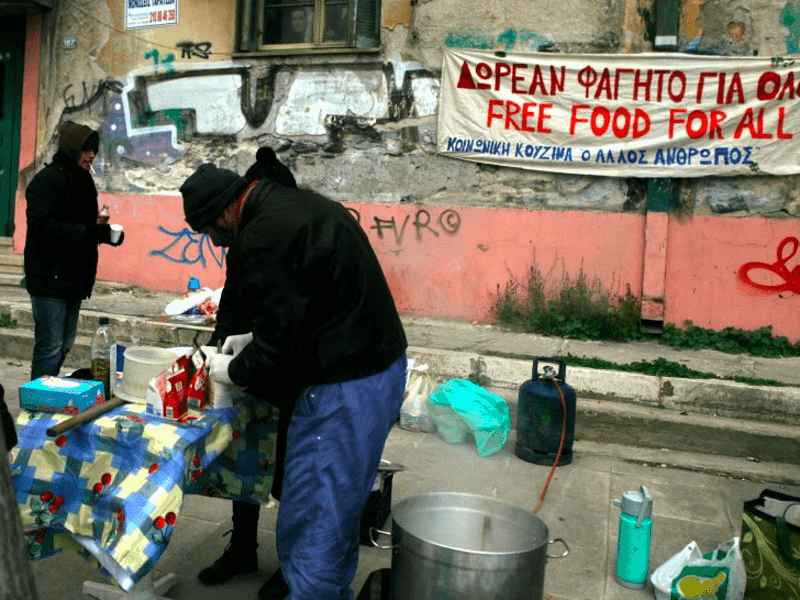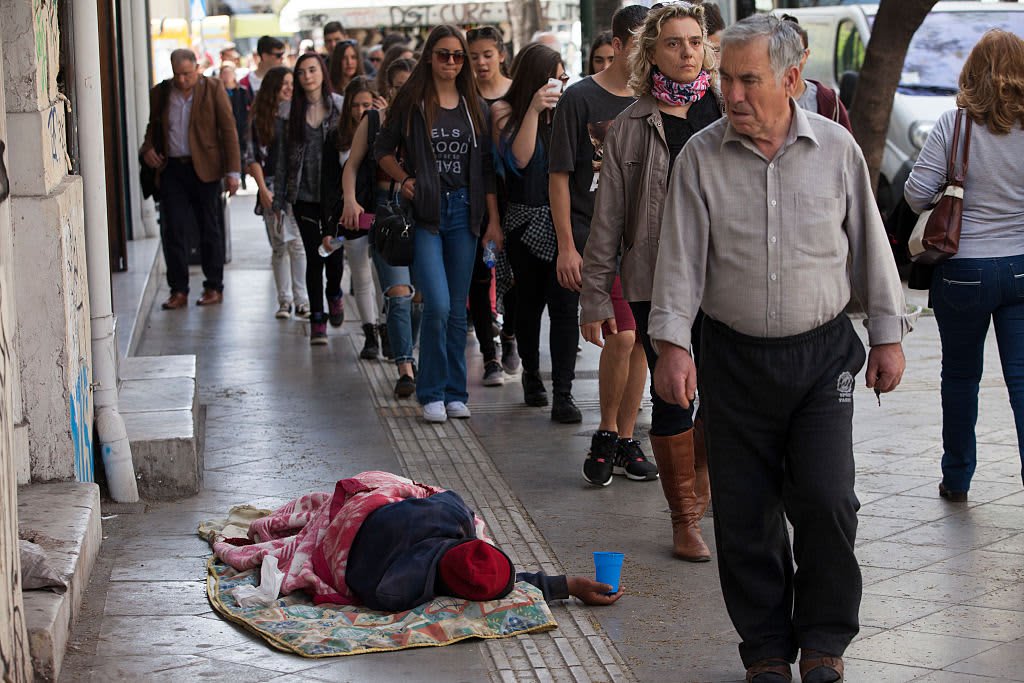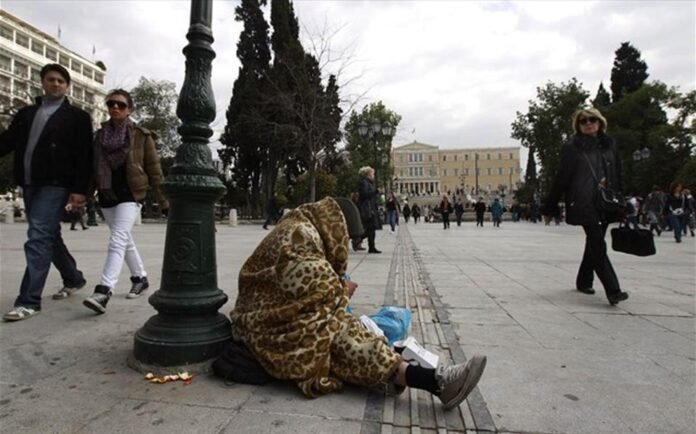Understanding the Current Economic Landscape
In recent years, Greece has made notable progress in its economic recovery following a prolonged financial crisis that significantly impacted its growth performance. Increasingly positive economic indicators reflect a shift towards stability. The rise of key metrics such as GDP growth, employment rates, and consumer confidence demonstrates an optimistic recovery trajectory, yet challenges remain, particularly for marginalized communities affected by poverty and social exclusion.
The Greek government has implemented various measures aimed at fostering economic growth and prosperity. Among these initiatives are increased pension benefits, which are designed to alleviate the financial strain on elderly citizens. Furthermore, the government has enacted hikes in the minimum wage, positioning it as an essential tool to improve the living conditions of low-income workers. Tax reductions, another critical component of the government’s strategy, have been introduced to enhance disposable incomes and stimulate consumer spending, aiming to provide support to the most vulnerable segments of society.
While these measures signify an essential step towards promoting economic welfare, their effectiveness in curbing the broader issues of poverty and social exclusion remains to be seen. Many of the initiatives have primarily benefited individuals in stable employment and may not adequately address the needs of those in precarious situations, such as the unemployed or underemployed. Consequently, there exists a tangible gap between economic recovery and the lived experiences of many citizens. A comprehensive approach that ensures these policy measures translate into tangible improvements for all societal segments is imperative to achieve a more inclusive growth model.
The Persistent Challenge of Poverty and Social Exclusion
Poverty and social exclusion have emerged as pressing issues in Greece, particularly in recent years. According to the Hellenic Statistical Authority (ELSTAT), the statistics reveal a troubling surge in the number of individuals and families affected by these conditions. As of the latest reports, approximately 27.5% of the population is living at risk of poverty or social exclusion, a figure that highlights the severity of this ongoing challenge.
Among the most alarming aspects of this phenomenon is the rising incidence of child poverty. Reports indicate that around 30% of children in Greece currently live in households facing material deprivation, a situation that poses significant risks to their development and future opportunities. This alarming trend not only reflects economic difficulties but also raises concerns about the long-term social implications for the nation. Families struggling to make ends meet are often forced to compromise on essential needs such as education, healthcare, and adequate nutrition, which are critical for children’s well-being.
Several factors contribute to the exacerbation of poverty and social exclusion in Greece. Unemployment rates have remained high, particularly among youth, which hampers economic mobility and stability. Moreover, the ongoing repercussions of the economic crisis that began over a decade ago have deeply affected both individual livelihoods and community resilience. Structural inequalities, including limited access to quality education and health services, further fuel the cycle of poverty, trapping families and individuals in a continuous struggle for survival.
The interplay of material deprivation, insecurity, and lack of resources indeed paints a grim picture for many Greek households. Addressing these challenges requires a comprehensive understanding of the underlying causes, an essential step toward developing effective solutions and interventions aimed at alleviating poverty and enhancing social inclusion.
The Inadequacy of Support Measures
Despite the introduction of various support measures aimed at alleviating poverty, such as the Minimum Guaranteed Income (MGI), their effectiveness remains a subject of concern. The MGI was designed to provide a safety net for the most vulnerable populations in Greece, ensuring a minimum standard of living. However, the implementation and adequacy of these measures have been widely criticized, particularly in light of escalating economic pressures and living costs.
One significant issue is the alignment of the MGI with current European standards. While it may adhere to certain regulations, the reality is that the financial assistance provided often falls short of meeting the basic needs of households. The purchasing power of the MGI has diminished over time due to inflation and the rising costs associated with housing, food, and essential services. As a result, many families experience continued financial insecurity despite government support, raising questions about the effectiveness of existing programs.
The cost of living in Greece has soared in recent years, posing an additional challenge to low-income households. Housing prices in urban areas, in particular, have seen significant increases, leading many families to allocate a larger portion of their income toward rent or mortgage payments. Concurrently, the prices of essential food items have also surged, further straining household budgets. This combination of factors exacerbates social exclusion and undermines the intended impact of support measures like the MGI.
Moreover, the reliance on a one-size-fits-all approach in determining support levels fails to take into account the diverse needs of individuals and families in varying circumstances. Localized socioeconomic conditions are often overlooked, resulting in systemic inadequacies that do not mirror the complexities of poverty in Greece. A holistic strategy is essential to effectively address these multidimensional challenges faced by those living in poverty.
The Road Ahead: Gaps and New Needs in Social Inclusion Strategies
As the findings of the “Poverty in Greece 2025” report illustrate, there are significant gaps in the current national strategies aimed at social inclusion and poverty reduction in Greece. Although there have been advancements in certain areas, the existing frameworks often fail to address the complexities of socio-economic challenges that many vulnerable populations face. The report highlights that groups such as immigrants, people with disabilities, and single-parent families are disproportionately affected by poverty, indicating an urgent need for tailored interventions that speak directly to their unique circumstances.
Furthermore, the economic repercussions of the COVID-19 pandemic have exacerbated existing vulnerabilities, revealing the inadequacies of current social support systems. A deficiency in comprehensive data on socio-economic trends complicates the development of effective policies. For a national strategy to be successful, it must incorporate continuous data tracking and community engagement to identify the evolving needs of society.
To bridge these gaps, the report advocates for a multi-dimensional approach that fosters collaboration among various stakeholders, including government agencies, non-profit organizations, and local communities. Innovative solutions such as community-led initiatives and digital platforms for information dissemination can enhance the readability and accessibility of available resources. Moreover, integrating social protection policies with labor market policies can create pathways for sustainable employment while ensuring that vulnerable populations receive the support they require.
In conclusion, addressing poverty and social exclusion in Greece requires a robust and adaptable strategy. By prioritizing the needs of marginalized groups, leveraging technology, and promoting cross-sector collaboration, Greece can work towards a more inclusive society where every individual has the opportunity to thrive, thus transforming the landscape of social support for future generations.




